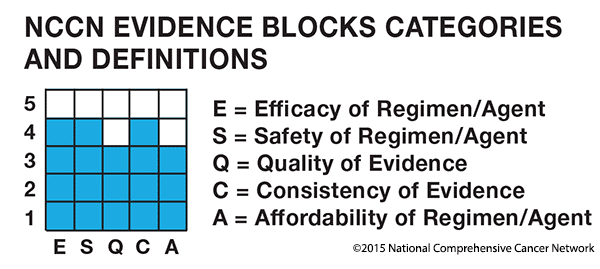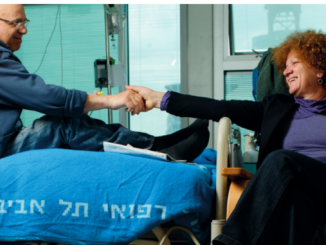When discussing about therapies, particularly in oncology, affordability needs to be addressed as one of the top priorities, along with safety and efficacy of the intervention, and quality and consistency of the evidence: this is the rationale behind the new graphic representation based on “Evidence Blocks” proposed by the U.S. National Comprehensive Cancer Network (NCCN, a nonprofit alliance of 27 U.S. cancer centers), which was designed to help physicians and other health care providers address health care costs and quality with their patients.
 As the costs of all treatments, and particularly cancer therapies, continue to rise (in the United States cancer is the leading cause of bankruptcy, and “financial toxicity” has been proposed among the side effects of cancer care), this tool was designed to help patients and families to consider all available options, knowing which are more or less affordable in their particular context.
As the costs of all treatments, and particularly cancer therapies, continue to rise (in the United States cancer is the leading cause of bankruptcy, and “financial toxicity” has been proposed among the side effects of cancer care), this tool was designed to help patients and families to consider all available options, knowing which are more or less affordable in their particular context.
On this issue, which was recently addressed on CancerWorld by Richard Sullivan (“Affordable cancer care: a global mirage?”), the American Association of HealthCare Journalists (AHCJ) has recently hosted a webinar – now freely accessible online – with Robert W. Carlson, M.D., chief executive officer of the National Comprehensive Cancer Network. Carlson addressed, with journalist Joseph Burns, the complex issue of value in cancer care starting from the assumption that value is defined in many ways by different constituencies, and its most important definition is the one given by each individual patient.





